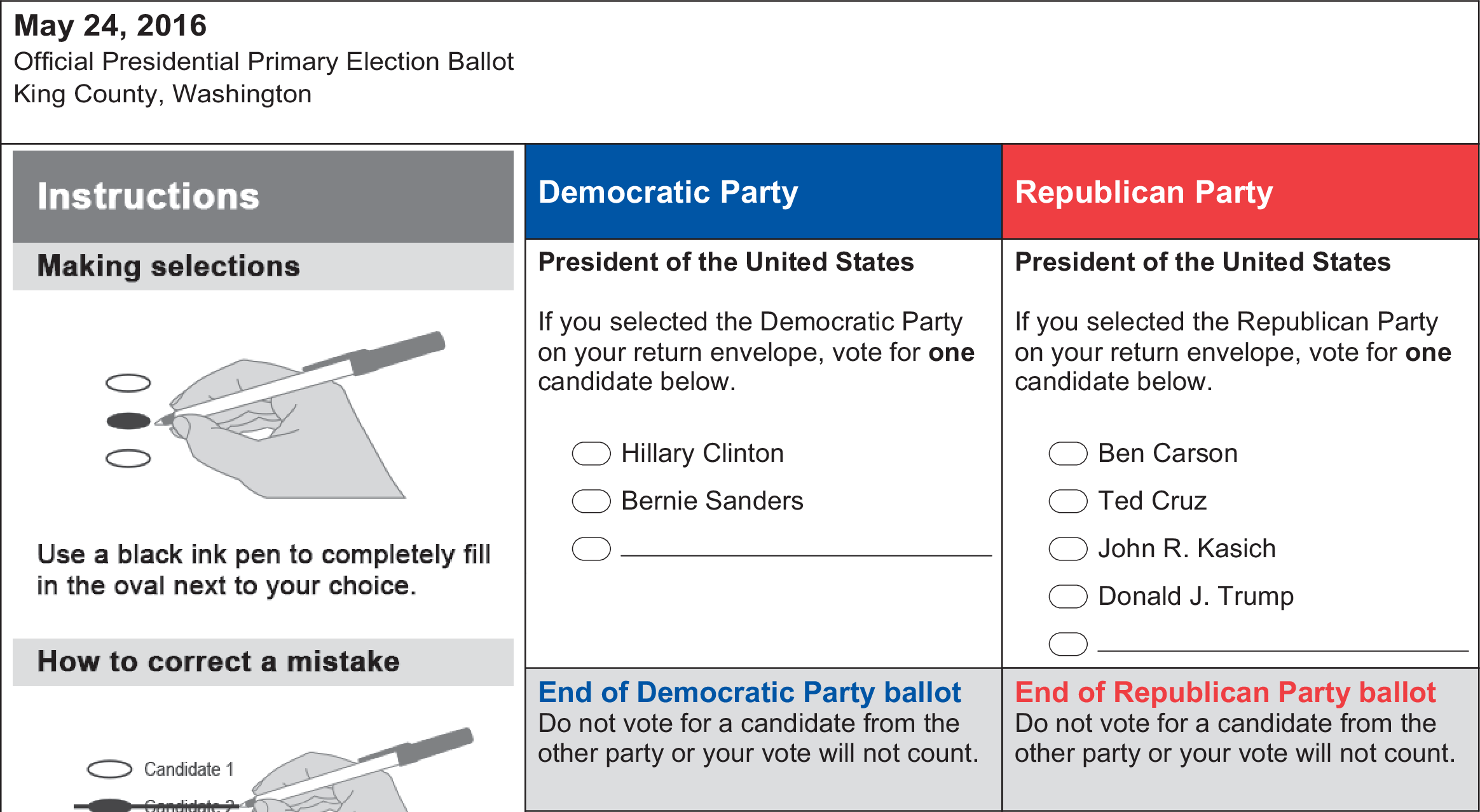The Washington State Democratic Party today released the list of candidates who have qualified to appear on the ballot in the state’s groundbreaking 2020 presidential primary on March 10th. The list is as follows:
- U.S. Senator Michael Bennet of Colorado
- Former Vice President Joe Biden
- Former Mayor of New York Michael Bloomberg
- U.S. Senator Cory Booker of New Jersey
- Former South Bend Mayor Pete Buttigieg
- Former U.S. Representative John Delaney of Maryland
- U.S. Representative Tulsi Gabbard of Hawaii
- U.S. Senator Amy Klobuchar of Minnesota
- Former Massachusetts Governor Deval Patrick
- U.S. Senator Bernie Sanders of Vermont
- Billionaire activist Tom Steyer
- U.S. Senator Elizabeth Warren of Massachusetts
- Entrepreneur Andrew Yang
Two other candidates (Senator Kamala Harris and the former Secretary of Housing and Urban Development, Julián Castro) submitted the required paperwork to appear on the ballot, but recently dropped out of the race. They asked the state party to remove their names from the ballot after suspending their campaigns. Since dropping out, Julián Castro has endorsed Elizabeth Warren’s candidacy.
Washington will hold its primary on March 10th, along with Michigan, Mississippi and Missouri. Many political observers believe this timing will place Washington at the center of a crucial moment for the nomination quest.
Normally, mid-March primaries are totally overshadowed by Super Tuesday (which is scheduled for March 3th). Super Tuesday sees candidates compete for a gigantic haul of delegates from fourteen states (including two of the largest states, Texas and California), and subsequent voting days often feel anticlimactic by comparison.
However, a couple of factors make 2020’s post Super Tuesday nominating events more important than they might otherwise be.
First is the unprecedented number of candidates on the ballot, which will likely dilute the effect of the Super Tuesday delegate haul. As a campaign strategist interviewed by Politico put it, “We’ve never had a situation where we get past Super Tuesday and there’s still five people in the field.” If, as seems likely, five or more candidates get through March 3rd and still have a shot at winning, the competition between them for the remaining states (such as Washington) will be especially fierce.
Second is the presence of billionaire and former New York Mayor Michael Bloomberg, who decided to enter the race only a few weeks ago.
While most of the candidates in the field have gone out of their way to denounce the corrupting influence of money in politics, Bloomberg has decided to embrace it fully, pouring tens of millions of dollars from his vast personal fortune into advertising, and hiring armies of paid campaign workers.
Bloomberg has deliberately chosen to avoid campaigning in the early states of Iowa and New Hampshire – which are seen as a proving ground for grassroots campaign strategies – and set his sights on Super Tuesday states, where he can rely on his vast financial reserves to blow the competition out of the water on the advertising front in expensive media markets such as California.
Bloomberg’s expected advertising and media dominance in the Super Tuesday states has led other, less well-funded campaigns to seek alternative routes to victory, and it seems likely that Washington and its fellow March primary states will get a lot of attention from these candidates.
Washington’s voters will receive their ballots by mail, and the eighteen-day voting period will begin on February 21st, lasting until 8 PM on March 10th.
The Washington State Democratic Party has never before used a presidential primary to allocate its national convention delegates, so this primary will be historic. The party will still hold caucuses in April and May for the purposes of delegate selection and partybuilding. The first caucuses will take place on Sunday, April 26th, at 1 PM in urban and suburban legislative districts.


Too bad Kamala Harris withdrew, I would have liked to be able to support her.